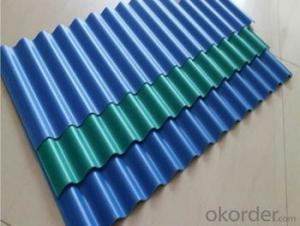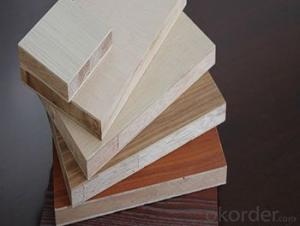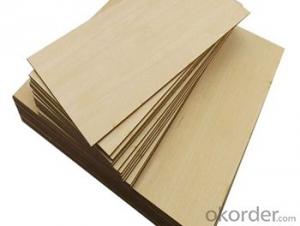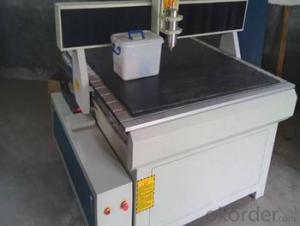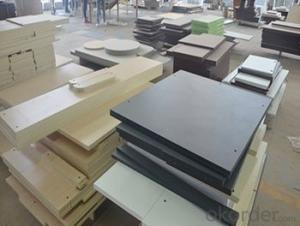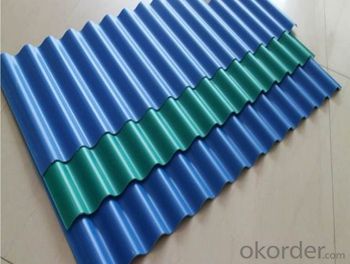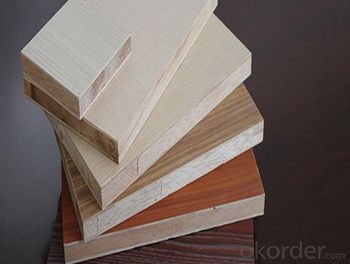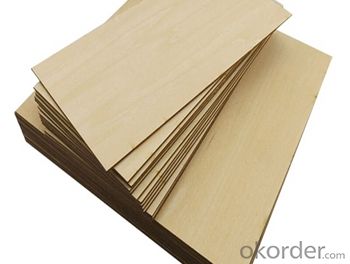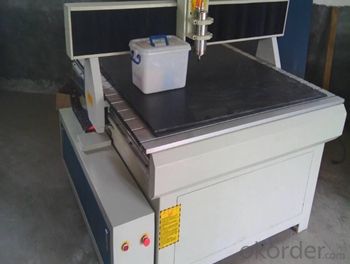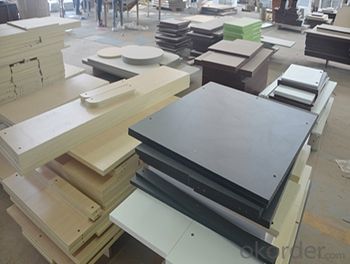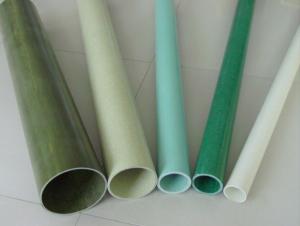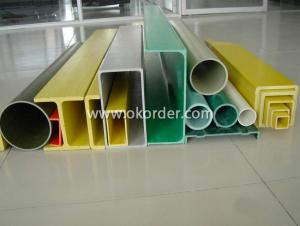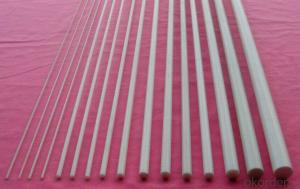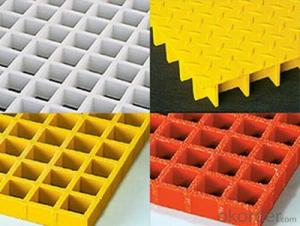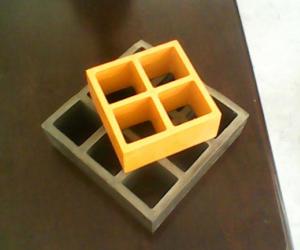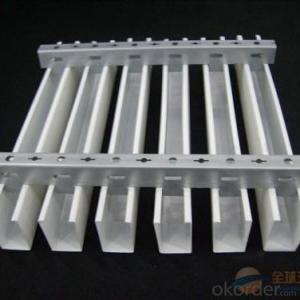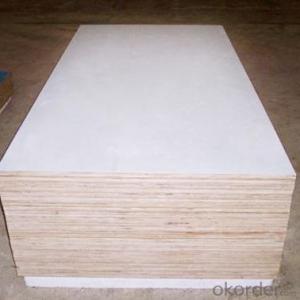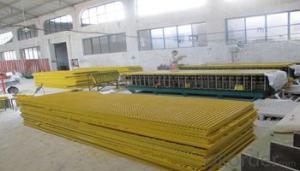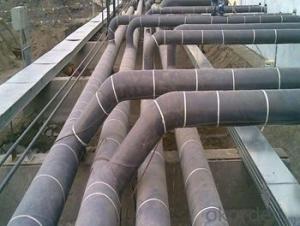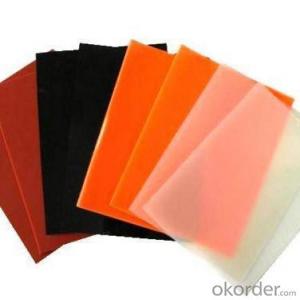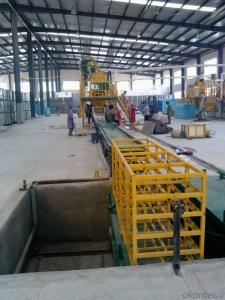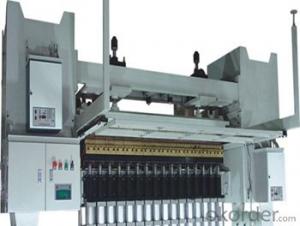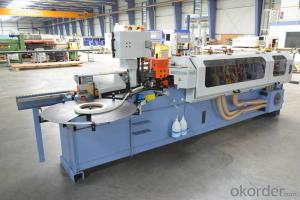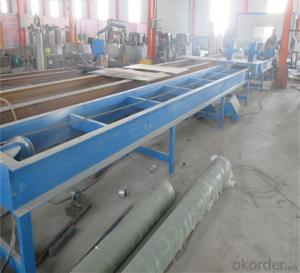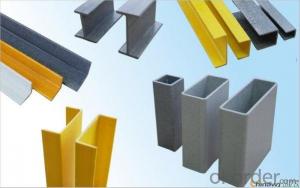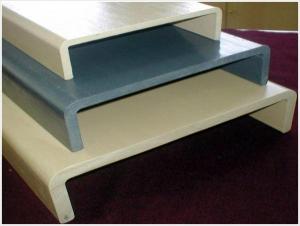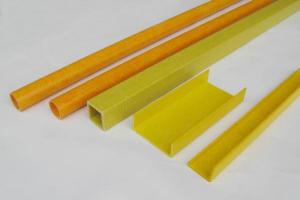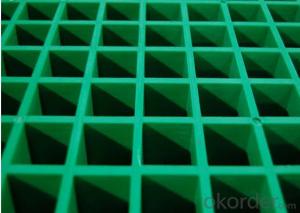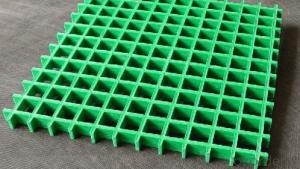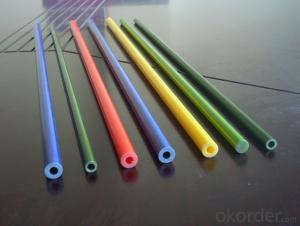FRP Pultrusion Profiles with Excellent Electromagnetism Property and High Quality New Design
- Loading Port:
- Tianjin
- Payment Terms:
- TT OR LC
- Min Order Qty:
- 1 m.t.
- Supply Capability:
- 100000 m.t./month
OKorder Service Pledge
OKorder Financial Service
You Might Also Like
PRODUCT DESCRIPTION
Pultruded grating is made by a particular assembly process, which using “I” shape as its main load-bearing and special rod to go through the bearing bar. Pultruded grating include the standard grating and the custom grating, the custom grating can be designed to meet customer’s requirement or special using condition by changing the shape, size and space of the bearing bars, the surface can be covered with lozenge panel, grit panel, or added the anti-slippery sand directly.
FRP pultruded grating has the most characteristics of molded grating, but it has its distinct advantages, it has very high fiberglass content in the loading direction, so it has very high load capability, it has more superiority when used at wide span, so that the basic support will be decreased and the project cost will be reduced accordingly.
SPECIFICATION
The standard space between two crossbars is 6 inch or 12 inch.
Thickness (mm) | Bar width (mm) | Open space (mm) | Open rate (%) | Approx weight (kg/m |
25.4 | 15.2 | 22.8 | 60 | 13.2 |
25.4 | 15.2 | 15.2 | 50 | 15.9 |
25.4 | 15.2 | 10.1 | 40 | 18.5 |
25.4 | 40 | 10.8 | 21 | 14.5 |
38.1 | 15.2 | 22.8 | 60 | 15.8 |
38.1 | 15.2 | 15.2 | 50 | 19.1 |
38.1 | 15.2 | 10.1 | 40 | 22.4 |
50.8 | 25.4 | 25.4 | 50 | 16.6 |
50.8 | 25.4 | 12.7 | 33 | 21.1 |
FEATURES
a. Anti-corrosion and anti-rust
b. Light weight and high strength
c. Anti-flammable
d. Anti- fatigue
e. Safe and anti-slippery
f. Anti-ageing
g. Easy of maintenance
h. Excellent electromagnetism property
i. Good economic benefit
FIELDS SERVED
Sewage treatment,
water supply and drainage,
chemical industry,
oil industry,
power engineering,
pulp and paper,
construction engineering,
spinning, marine engineering.
APPLICATION
Operation terrace,
stair walkway,
ground floor,
trench cover,
sidewalk,
foot bridge,
equipment safety fence,
scaffold.
COMPANT DESCRIPTION
CNBM,China National Building Materials Group is a state-owned enterprise in charge of administrative affairs in china building materials industry. Established in 1984, CNBM is a large group corporation of building materials with total assets of 25 billion RMB and a total staff of 30,000.CNBM now owns 200 subordinating firms of solely owned and joint-venture companies.
CNBM International Corporation is one subsidiary of CNBM, we focus on offering good-quality products,professional service and complete solution to our customers. Strong delivery capacity, advanced technology& management, strong financing capability and excellent after-sale service are our advantages in sharing international market.
FAQ
Q1.What's your sample policy?
A:We can supply the sample if we have ready parts in stock, but the customers have to pay the courier cost.
Q2.Can you produce according to the samples?
A: Yes, we can produce or modify the products according to your request.
Q3.How do you deliver the goods to my country?
A:We can provide international express, such as DHL, EMS, UPS, FedEx, etc. We select air freight and sea freight upon your requests. Quotations if without mentioning the shipping costs are shipping fee excluded.
Q4.How much does it cost to ship to my country?
A:When you goanna to place an order, please contact us, because different country has different freight.
Q5.How to get the catalogue?
A:please contact us and tell us what you are looking for.
We will try our best to meet customers' demands. Welcome you come here to visit us. We sincerely welcome partners around the world to establish business cooperation with us on the basis of mutual trust, benefit and development.
PICTURES
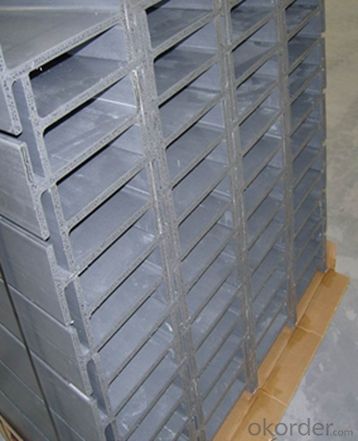
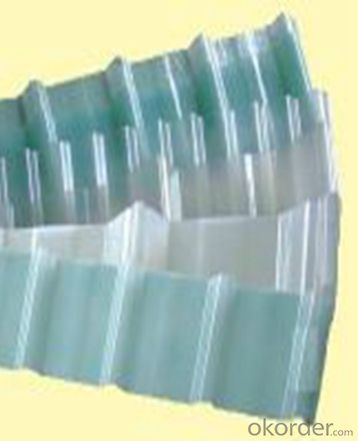
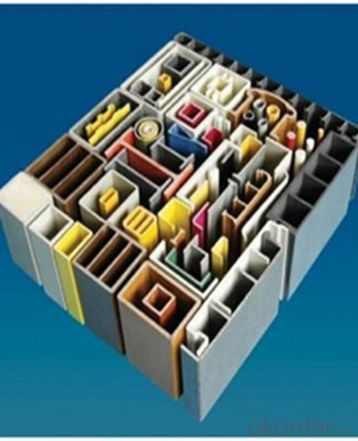
- Q: How do FRP pultrusion profiles handle cyclic loading?
- FRP pultrusion profiles are known for their excellent resistance to cyclic loading. The combination of the fiber reinforcement and the resin matrix in the pultrusion process results in a highly durable and fatigue-resistant material. The inherent strength and stiffness of the fibers help to distribute the applied loads evenly, while the resin matrix absorbs and dissipates the energy from cyclic loading, preventing crack propagation and failure. This makes FRP pultrusion profiles a reliable choice for applications that involve repeated or fluctuating loads.
- Q: Are FRP pultrusion profiles resistant to biological growth, such as mold or mildew?
- FRP pultrusion profiles are highly resistant to biological growth, such as mold and mildew. These profiles have a non-porous structure that makes it difficult for microorganisms to attach and grow. They are typically made with a combination of resin and glass fibers, both of which naturally resist biological growth. In contrast to materials like wood or metal, FRP does not create an ideal environment for mold or mildew. The smooth and non-porous surface of FRP prevents moisture absorption, which is necessary for microorganisms to thrive. Additionally, FRP materials lack organic compounds that can support the growth of mold or mildew, thus enhancing their resistance to biological degradation. When it comes to applications that require resistance to biological growth, FRP pultrusion profiles offer a significant advantage over other materials. They are commonly used in environments with high humidity, moisture, or water exposure, such as marine, agricultural, or wastewater treatment facilities. Furthermore, FRP profiles are frequently employed indoors in areas where mold or mildew growth is a concern, such as sanitary areas or food processing plants. Overall, FRP pultrusion profiles are an excellent solution for combating biological growth, including mold and mildew. Their non-porous nature, combined with the inherent resistance of the materials used in their manufacturing, ensures durability and longevity in environments where microbial growth is a potential issue.
- Q: Are FRP pultrusion profiles resistant to mold and mildew?
- Yes, FRP pultrusion profiles are highly resistant to mold and mildew. The non-porous nature of the fiberglass reinforcement and the synthetic resin matrix used in pultrusion manufacturing make these profiles highly resistant to moisture absorption, preventing the growth of mold and mildew.
- Q: Are FRP pultrusion profiles resistant to fuels?
- Generally, FRP pultrusion profiles possess resistance to fuels. The combination of strong fibers and a polymer matrix grants FRP profiles significant resistance to a range of chemicals, including fuels. This resistance primarily stems from the non-reactive nature of the polymer matrix, which prevents fuel from causing notable degradation or harm to the profiles. Industries that frequently encounter fuel exposure, such as automotive, aerospace, and oil and gas sectors, commonly employ FRP pultrusion profiles. These profiles have undergone extensive testing and have demonstrated their ability to withstand prolonged contact with fuels without suffering detrimental effects. Furthermore, FRP profiles provide numerous advantages over traditional materials like steel or aluminum in applications involving fuels. They resist corrosion, are lightweight, and exhibit excellent dimensional stability, making them ideal for environments with a high risk of fuel exposure. However, it is important to note that the specific resistance of FRP pultrusion profiles to fuels may vary depending on the fuel type, concentration, and the composition of the FRP material itself. Therefore, it is always advisable to consult the manufacturer or supplier to ensure that the chosen FRP profiles are suitable for the particular fuel-related application.
- Q: Can FRP pultrusion profiles be used in cooling towers?
- Yes, FRP pultrusion profiles can indeed be used in cooling towers. FRP (Fiber Reinforced Polymer) pultrusion profiles offer excellent corrosion resistance, lightweight construction, and high strength, making them ideal for cooling tower applications. These profiles can withstand the harsh environmental conditions typically found in cooling towers, such as exposure to chemicals, moisture, and temperature variations. Additionally, FRP pultrusion profiles are easy to install, require minimal maintenance, and have a long service life, making them a cost-effective choice for cooling tower construction.
- Q: Are FRP pultrusion profiles resistant to electromagnetic interference?
- FRP pultrusion profiles are known for their resistance to electromagnetic interference (EMI). By using fiberglass reinforced plastic (FRP) in pultrusion profiles, they offer exceptional electrical insulation properties that effectively minimize the impact of electromagnetic interference. Unlike conductive metals, FRP materials possess high dielectric strength and low electrical conductivity. As a result, FRP pultrusion profiles are less vulnerable to EMI and can serve as barriers against electromagnetic waves. Moreover, if necessary, additional layers or coatings can be applied to enhance the EMI shielding effectiveness of FRP materials. In conclusion, for applications where resistance to electromagnetic interference is crucial, FRP pultrusion profiles are a dependable choice.
- Q: Can FRP pultrusion profiles be used in automotive applications?
- Yes, FRP pultrusion profiles can be used in automotive applications. They offer several advantages such as high strength-to-weight ratio, corrosion resistance, and design flexibility. Additionally, FRP pultrusion profiles can withstand harsh environmental conditions, making them suitable for various automotive components, including body panels, structural supports, and interior parts.
- Q: Can FRP pultrusion profiles be used in chemical processing plants?
- Yes, FRP (Fiber Reinforced Polymer) pultrusion profiles can be utilized in chemical processing plants. FRP is resistant to corrosion, chemicals, and extreme temperatures, making it an ideal material choice in such environments. Additionally, FRP pultrusion profiles offer high strength-to-weight ratio and low maintenance requirements, making them suitable for various applications within chemical processing plants.
- Q: Can FRP pultrusion profiles be used in wastewater treatment facilities?
- Yes, FRP (Fiber Reinforced Polymer) pultrusion profiles can be used in wastewater treatment facilities. FRP pultrusion profiles offer several advantages such as high strength-to-weight ratio, corrosion resistance, and durability, which make them suitable for use in harsh environments like wastewater treatment facilities. In wastewater treatment facilities, there are various applications where FRP pultrusion profiles can be used. These include but are not limited to walkways, handrails, ladders, grating, and structural supports. The corrosion resistance of FRP makes it ideal for use in areas exposed to moisture and chemicals present in wastewater. Furthermore, FRP profiles are lightweight, which simplifies installation and reduces the load on supporting structures. The durability of FRP pultrusion profiles ensures long-term performance, even in aggressive environments. They have a high resistance to chemical attack, UV radiation, and bacterial growth, making them suitable for wastewater treatment applications. Additionally, FRP profiles can be designed to meet specific load requirements and can be easily fabricated to fit various shapes and sizes. Moreover, FRP pultrusion profiles offer excellent electrical insulation properties, which can be advantageous in wastewater treatment facilities where electrical safety is a concern. In summary, FRP pultrusion profiles can be effectively used in wastewater treatment facilities due to their corrosion resistance, durability, lightweight nature, and versatility in design and fabrication. These profiles can provide long-lasting solutions for various applications within these facilities, ensuring operational efficiency and minimizing maintenance requirements.
- Q: What are the different surface finishes available for FRP pultrusion profiles?
- Some of the different surface finishes available for FRP pultrusion profiles include smooth, textured, non-skid, and glossy finishes. These finishes can enhance the aesthetics, improve grip, and provide protection against UV radiation and corrosion.
Send your message to us
FRP Pultrusion Profiles with Excellent Electromagnetism Property and High Quality New Design
- Loading Port:
- Tianjin
- Payment Terms:
- TT OR LC
- Min Order Qty:
- 1 m.t.
- Supply Capability:
- 100000 m.t./month
OKorder Service Pledge
OKorder Financial Service
Similar products
Hot products
Hot Searches
Related keywords
